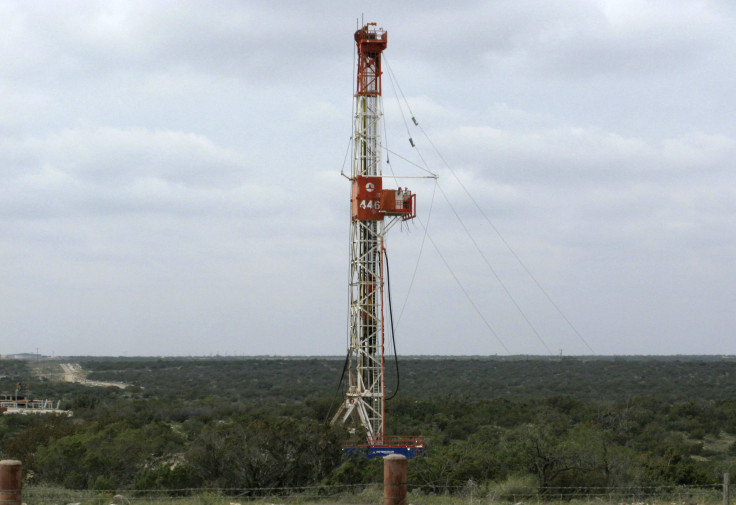Fracking Study: High Levels Of Poisonous Chemicals Found Near Oil-And-Gas Drilling Sites In Five States

High concentrations of airborne chemicals were recorded near oil-and-gas drilling sites in five states, a new study found. The report is the latest attempt by scientists and researchers to quantify how the process of hydraulic fracturing, or fracking, may affect Americans’ health.
Eight harmful chemicals appeared near wells and fracking sites in Arkansas, Colorado, Pennsylvania, Ohio and Wyoming at levels far above what federal regulators consider to be safe. The most common of the bunch were benzene -- a compound known to cause cancer in humans -- and formaldehyde, which is associated with certain types of cancer.
“This is a significant public health risk,” Dr. David Carpenter, the study’s lead author and director of the Institute for Health and the Environment at Albany State University of New York, told U.S. News & World Report. At one site, benzene levels were five times the federal limit. “You could practically just light a match and have an explosion with that concentration,” he said. “It’s an indication of how leaky these systems are.”
The study, published Thursday in the journal of Environmental Health, relied on data from 35 air samples taken at 11 sites on homes and farms near fracking sites. Participating citizens were trained by Global Community Monitor, an environmental justice group, and collected the samples during periods of heavy industrial activity, or when residents experienced headaches, nausea or other health issues. Another 41 “passive” tests were conducted to test for formaldehyde.
“All the attention being paid just to pollution to water from fracking has been misplaced,” Carpenter told the Albany Times Union, a New York newspaper. “Our tests show that the air around gas sites is much more dangerous.”
Energy in Depth, a pro-drilling organization, disputed the report’s findings, arguing that it relied on “scientifically dubious methods” to gather and analyze data.
In September, a separate study by the National Institutes of Health found that Pennsylvanians who live close to natural gas wells are twice as likely to report skin and respiratory problems as residents who live farther away. While the survey doesn’t establish fracking as the cause of this hike in health issues, it does point to the need for additional research, the report’s authors said.
Another analysis in August concluded that at least 33 U.S. fracking firms have illegally injected diesel fuel into hundreds of oil and gas wells in a dozen states, potentially threatening drinking water and human health.
© Copyright IBTimes 2024. All rights reserved.





















